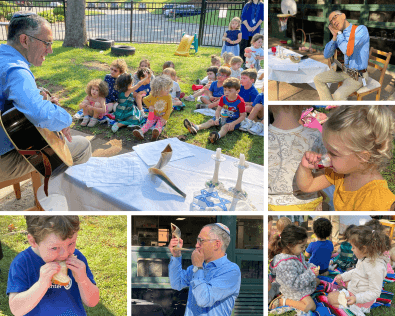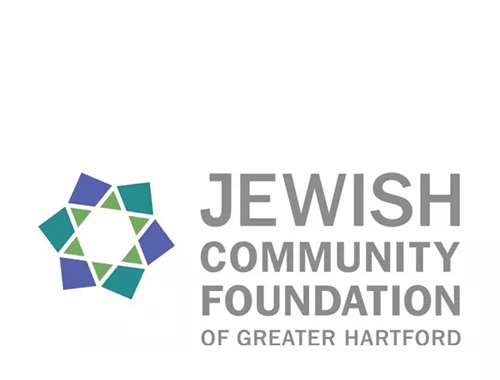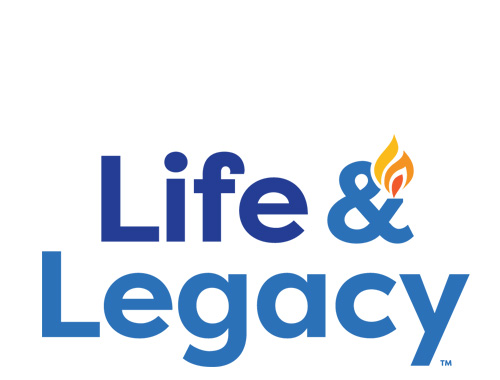Schechter Shavua: September 16, 2022
Delicious Learning is Happening in Ilanot
Did you know that apples can be used to teach four different subjects simultaneously? The Ilanot (Kindergarten) class participated in a cross-curricular activity applying science, math, Hebrew, and Judaic Studies skills. Students tasted three different varieties of apples: Red Delicious, Granny Smith, and Golden Delicious. They began by discussing why the tasting fruit was an apple: for Rosh Hashanah, of course! We eat apples to help represent a sweet new year.
Students named the fruit in Hebrew in both the singular and plural forms. Next, they took turns using their scientific observational skills to discuss and chart the look, feel, smell, and taste of the apples. Then they learned and recited the blessing for fruits that grow on trees prior to tasting. Finally, after tasting all varieties, they used their math graphing and counting skills to graph the juiciest and their favorite apples, and then count to determine the winner. Overall, it was a delicious way to do some learning across content areas in the spirit of Rosh Hashanah!
See more delicious photos HERE!
Learning the Vascular System through Celery
The Alimstudents (grades 3-4) recently began a science unit about plants and animals. In the first lesson, the students observed the shapes and structures of plant parts and their functions, focusing on roots, stems, leaves, and the vascular system. The vascular system is a system of tubes inside a plant that connect the leaves, stems, and roots. Students then investigated and observed celery stalks to determine that water can be transported through the celery stems up to the leaves. Food coloring added to the water enabled the students to have a clear visual of where the water was traveling, resulting in gasps of surprise and excitement.
Click HERE to see more photos!
Fostering a Love of Judaism in our Youngest Students
 Early Childhood Kabbalat Shabbat with Rabbi Berger is a great way for our youngest students to feel connected to Judaism. On the weeks when EC doesn’t join the schoolwide ReLiSh program, they get together to sing with Rabbi Berger and celebrate Shabbat. Students sway to the music of the guitar, sing Shabbat songs, recite the blessings, light the candles, drink grape juice and eat challah! If your child mysteriously breaks into verses of “Bim Bam,” “There’s a Dinosaur Knocking at my Door,” “Shabbat is Here,” “Yom Rishon Avodah,” or “Mah Yafeh Hayom,” now you know why. That’s the Schechter experience!
Early Childhood Kabbalat Shabbat with Rabbi Berger is a great way for our youngest students to feel connected to Judaism. On the weeks when EC doesn’t join the schoolwide ReLiSh program, they get together to sing with Rabbi Berger and celebrate Shabbat. Students sway to the music of the guitar, sing Shabbat songs, recite the blessings, light the candles, drink grape juice and eat challah! If your child mysteriously breaks into verses of “Bim Bam,” “There’s a Dinosaur Knocking at my Door,” “Shabbat is Here,” “Yom Rishon Avodah,” or “Mah Yafeh Hayom,” now you know why. That’s the Schechter experience!
We look forward to welcoming EC families to join our Kabbalat Shabbat service beginning in late September. Stay tuned for more details.
Parashat Ki Tavo—From Special Moments to Long-Lasting Blessings
We have income taxes; the ancient Israelites had a seven-year cycle of tithes, through which farmers would dedicate ten percent of their harvests to various recipients. For some tithes, all that had to happen was the actual donation, but our parashahdescribes a ritual that accompanied one of the tithes.
After giving to the poor at the end of the third year, the Israelites made a formal declaration that they had paid the tithe—and then they asked for a blessing: “[God,] gaze down at us from Your holy abode, from the heavens, and bless Your people Israel, and the land You gave us after promising it to our ancestors—a land flowing with milk and honey."
What exactly were those Israelite farmers asking for? A fertile land? But the land is already fertile, as they acknowledged, flowing with milk and honey. A good harvest? They already had one! Avraham ibn Ezra, a medieval commentator, offers a simple and elegant answer: “[the request is] that it be this way forever.” In the moment of celebration, full of pride in his harvest and gratitude for the wonderful land of Israel, the farmer could only ask for one more blessing: that the special, emotional, memorable moment he was experiencing would be just the first of many, that every year would be so blessed.
As Rosh Hashanah approaches, we may be thinking and praying about all the things we hope will change in the coming year. We hope for better health, stronger relationships, better financial stability, and more; all these things are important, and I hope our prayers for them come true. But I also hope we can reflect on our blessings, on the wonderful parts of our lives that we should never take for granted, and pray for nothing more than that they continue.
Shabbat shalom,
Rabbi Jonathan Berger
Head of School
Questions for the Shabbat table:
1. Do you think the prayer affected the way the Israelites felt about paying their taxes (i.e. their tithes)?
2. When you look at your life and its blessings, what makes you say, “I hope it’s always like this!”
Solomon Schechter Day School
of Greater Hartford
26 Buena Vista Road
West Hartford, CT 06107
© Solomon Schechter Day School of Greater Hartford | Site design Knowles Kreative




